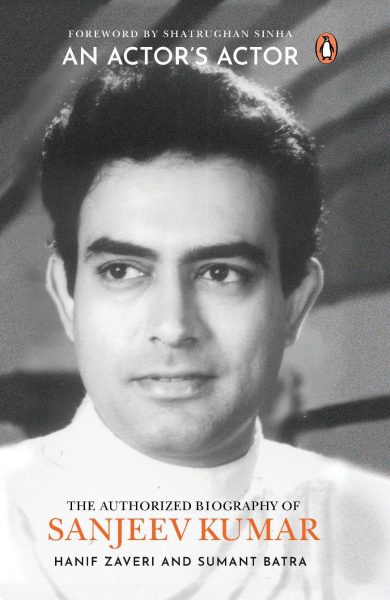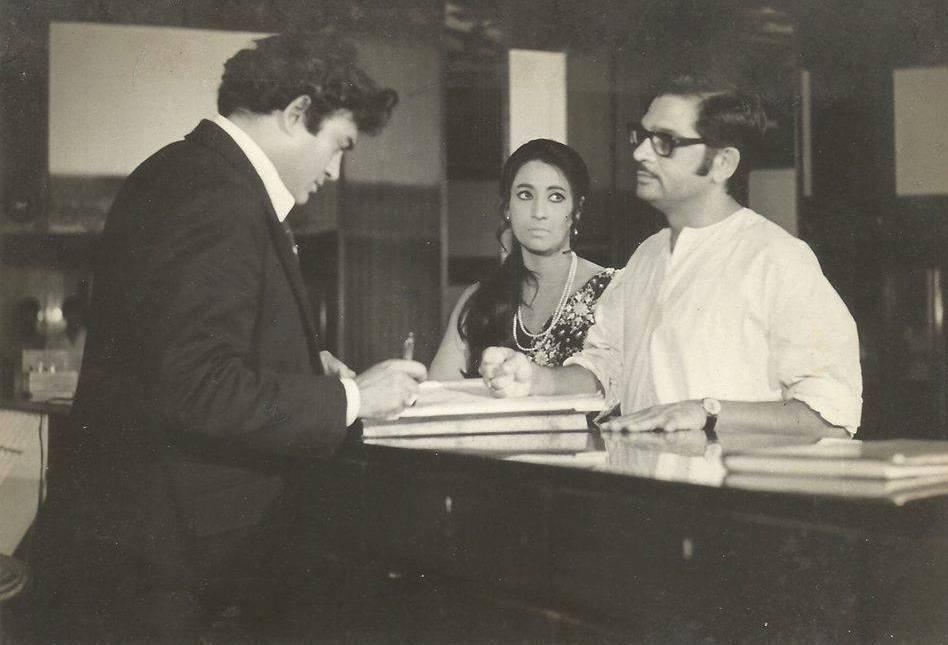An Actor’s Actor: The Authorized Biography Of Sanjeev Kumar highlights the life and times of one of Indian cinema’s greatest ever actors, Sanjeev Kumar. Written by Hanif Zaveri and Sumant Batra, the book is published by Penguin Random House India. Here is an edited excerpt from the book looking at the making and release of one of Kumar’s finest films, Aandhi (1975), produced by J. Om Prakash and directed by Gulzar. The film co-starred the great Suchitra Sen.
Wary of her infamous temper, Sanjeev was always careful around Suchitra Sen. The film was shot in Srinagar, and belying all expectations, Kumar was never late. Suchitra Sen commanded such respect that she was addressed as ‘Sir’ by everyone including Gulzar. As the film progressed, Sanjeev began to feel her centrality to the movie more and more deeply. He came to believe that the film would be remembered for her seminal work only. However, he kept his doubts to himself and finished the shooting.
The movie had a scene where A.K. Hangal, who was playing the role of their domestic help, had to pick up Sanjeev coat and help him put it on. Sanjeev objected to this scene as disrespectful towards Hangal, who was not only his senior but also one of his earliest mentors. Hangal took Sanjeev aside and explained to him that they must put aside their real-life identities before the camera and become whoever the script demanded them to be. He also reminded Sanjeev that before he joined the film industry, he had been a tailor by profession and had helped many people put on coats on a regular basis. Sanjeev agreed to do the scene. However, Gulzar removed it on the editing table.
A day after its release, veteran actor Ashok Kumar called Sanjeev and told him that Suchitra Sen was stunning, as usual, but Sanjeev had fared even better. Delighted, Sanjeev made Ashok Kumar repeat himself so he could savour the praise.
Aandhi also courted controversy given the belief that Suchitra Sen’s Aarti Devi was based on Indira Gandhi, then prime minister of India. While Indira Gandhi’s appearance and mannerisms were used as references, Gulzar claimed that the plot had nothing to do with her experiences. Many took offence at the fact that Aarti Devi was shown imbibing alcohol on screen. Unfortunately, the film was released during the Emergency and was banned after running for only twenty weeks in the theatres.
A.K. Hangal remembers Sanjeev Kumar’s chagrin about the government’s decision. The film had been a success while it ran, and now it seemed that one of his stellar performances would be consigned to the archives forever. The information and broadcasting minister the time, Vidya Charan Shukla, a friend of Om Prakash, told the producer to approach the prime minister for help. Meanwhile, Gulzar and Sanjeev Kumar were advised to keep mum in public regarding the film.
Om Prakash wrote a short letter to Indira Gandhi, informing her that he had been adversely affected by the Emergency. He received a call from the PMO in three days telling him that he had been permitted a fifteen-minute audience with Mrs Gandhi.
Over the course of the conversation, Om Prakash realized that Mrs Gandhi had not even seen the film! he confessed to her that while the appearance of the leading lady was inspired by her style, he felt that it did not warrant the film being banned. Assuring him that she would do the needful, Indira Gandhi concluded the meeting. The following day, Om Prakash was informed by Vidya Charan Shukla that the film had been cleared for screening.
Nevertheless, the process took another six months to go through. The film had to be screened by the censor board once again, and the scenes with the leading lady smoking and drinking were cut. However, on its second release, the film did not draw audiences as it had done before.
Despite the roadblocks, Aandhi remains one of Sanjeev Kumar’s landmark films.

Header photo featuring Sanjeev Kumar, Suchitra Sen and Gulzar on the sets of Aandhi courtesy the Film Heritage Foundation.



Of course it is a landmark film of sanjeev kumar. A film Beautifully picturised blend with melodious songs.
Sanjeev Kumar (1938-1985) will be remembered for many films. Seeta Aur Geeta (1972), Manchali (1973)- “Gham Ka Fasana”, Imaan (1974)
“Paise Bina Pyar Fizool Hai”. I believe his best work was G.P. Sippy’s Sholay (1975) and of course Aandhi (1975) both released during the Indian Emergency (1975-1977). He did other films Trishul (1978), Yash Chopra’s Silsila (1981). The sad thing about him though was his health- Haribhai had a heart condition in which the male members of his family never lived beyond the age of 50. He did receive treatment in America after having a heart attack in 1976. He had a fondness for food according to actress Moushumi Chatterjee as well as being an alcoholic. He was a lifelong bachelor- although he was linked to actress Sulakshana Pandit. It is said that she fell on hard times- actor Jeetendra came to her rescue. Back to Harihar Jariwala- he died of a heart attack in 1985. He did get his dues in theend though there is a road named after him & a stamp bearing his likeness (image).